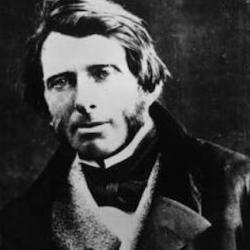Boyd Hilton writes (in Age of Atonement) about Evangelical “aetiology of business immorality” that emerges from 19th-century sermons, novels, and pamphlets:
Once “fallen,” commercial man becomes a prey to materialism. His business absorbs too much of his life, and colours all his thoughts and actions, leaving no time for “legitimate” and “enlightened moral” amusement. “Hence these jaundiced, dyspeptic, jaded, emaciated, rheumatic, neuralgic, paralytic pill-boxes and boluses, ruins of men, who crowd the streets of mercantile and manufacturing cities, occupy counting-houses, and stand at Change” [quoting an anonymous 1864 article]. Master and man are equally ground down to lunacy and sudden death, the latter is subjected to political economy’s “division of labour” and to a consequent alienation from the work process. Gradually intensity turns into terror and creates deep psychological scars (144–5).
Salvation comes in the form of bankruptcy and poverty:
It is often recorded that victims of business crashes showed relief and even elation when the long-expected blow struck. “We shall be the better for passing through the ordeal,” confided Gladstone’s father in 1826, a comment which gives point to Disraeli’s description of Archibald Constable as indulging in an “ecstasy of pompous passion” while on the point of his “fatal and shattering bankruptcy” the year before. The hero of Edmund Yates’s “Kissing the Rod. A Novel” (1866) is one who learns unselfishly only after going bust—deserted by his wife, “whom he had won with money,” all he feels is worry and pity for her in her privations. They are reconciled at last, and partly only by death. “It is indeed a kind Providence which superintends our concerns, and brings us into difficulties, that we may know who can extricate us out of them” (145).
This theologically correct, but it’s hard not to detect some masochistic undercurrents.















